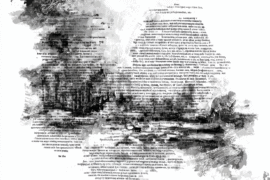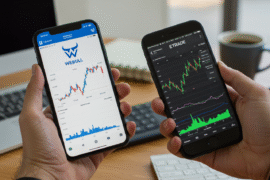This article may contain references to products or services from one or more of our advertisers or partners. We may receive compensation when you click on links to those products or services. Nonetheless, our opinions are our own.
Degree fraud, an alarming and prevalent issue, undermines the credibility of educational institutions and the value of genuine academic achievements. This growing concern affects not just the education sector but also the global job market, where the integrity of qualifications directly influences employment decisions.
Enter blockchain technology, a groundbreaking innovation that has the potential to revolutionize the way we approach the security and verification of academic records. Blockchain offers a robust solution characterized by its decentralized, transparent, and immutable nature. This technology provides a promising pathway to combat the persistent challenge of degree fraud, ensuring that academic credentials are securely recorded and easily verifiable.
Understanding Degree Fraud
Degree fraud, a growing concern in the academic and professional worlds, refers to the act of falsely claiming academic credentials or qualifications that one has not earned. This fraudulent activity can range from exaggerating grades on a resume to purchasing fake degrees from diploma mills. The prevalence of such deceitful practices has been escalating, posing significant challenges to employers, educational institutions, and genuine students.
For employers, the impact of hiring an individual with a falsified degree can be substantial. It not only undermines the integrity of the hiring process but also potentially jeopardizes the organization’s performance and reputation. Educational institutions suffer from a tarnished reputation and a devaluation of their legitimate degrees. Genuine students, on the other hand, face unfair competition in the job market, where their authentic qualifications might be overshadowed by fraudulent claims.
Traditionally, degree verification has relied on a mix of manual checks, contacting educational institutions directly, and employing third-party verification services. However, these methods are often time-consuming, prone to human error, and can be circumvented by sophisticated counterfeiters. As technology evolves, so do the methods of forging academic records, making it increasingly challenging to ensure the integrity of academic credentials.
An Overview of Blockchain Technology
Blockchain technology, often associated with cryptocurrencies like Bitcoin, is a decentralized digital ledger that records transactions across many computers in a way that the recorded transactions cannot be altered retroactively. This technology is characterized by its key features: decentralization, meaning no single entity has control over the entire network; transparency, as all participants in the network can view the transactions; and immutability, ensuring that once a transaction is recorded, it cannot be changed or deleted.
The application of blockchain has expanded far beyond its initial use in financial transactions. Today, various sectors are exploring its potential, from supply chain management to voting systems. In academic settings, blockchain can offer a novel approach to handling and verifying academic records. Interestingly, some students looking to understand this technology better might find themselves searching online for resources or even assistance, perhaps typing “write my paper website” to seek expert guidance on blockchain-related assignments.
Blockchain in Academic Record Verification
The integration of blockchain technology into the verification of academic records presents a groundbreaking solution. By creating a decentralized and immutable ledger of academic achievements, blockchain can significantly enhance the security and authenticity of these records. This system would allow educational institutions to issue digital credentials that are tamper-proof and easily verifiable.
Several institutions have begun to pioneer the use of blockchain for this purpose. For instance, the Massachusetts Institute of Technology has implemented a blockchain-based system to issue digital diplomas to its graduates. These digital records can be shared and verified instantaneously, reducing the administrative burden and the risk of fraud.
The advantages of using blockchain for academic record verification are manifold. Firstly, it enhances the security of records, making them nearly impossible to forge. Secondly, it streamlines the verification process, allowing employers and other institutions to verify credentials quickly and reliably. This efficiency not only saves time but also reduces the costs associated with traditional verification methods. Lastly, blockchain provides a universal and accessible platform, ensuring that academic records can be verified regardless of geographical boundaries, which is particularly beneficial in an increasingly globalized education sector.
Challenges and Limitations
While blockchain technology offers a promising solution for securing academic records, it is not without its challenges and limitations. One of the primary technical challenges lies in integrating blockchain into existing educational infrastructure. Many institutions have longstanding systems for record-keeping, and transitioning to a blockchain-based system requires significant technical, financial, and administrative resources.
Privacy and data protection are also major concerns. Academic records contain sensitive personal information, and the decentralized nature of blockchain raises questions about how this data can be protected while still being accessible and verifiable. Ensuring compliance with data protection regulations like GDPR in Europe is crucial.
Another limitation is the need for standardization across educational institutions. For blockchain-based academic verification to be universally effective, there must be a consensus on the format and protocol of digital credentials. This requires collaboration and agreement across a wide range of institutions, each with its own policies and systems.
Finally, there is potential resistance from educational institutions themselves. Some may be hesitant to adopt new technology due to costs, the complexity of the transition, or skepticism about its effectiveness. Overcoming these obstacles will require concerted efforts to demonstrate the long-term benefits and feasibility of blockchain for academic record verification.
The Future of Academic Record Verification
Looking to the future, it is likely that blockchain technology will play an increasingly significant role in the verification of academic records. As awareness of the technology’s potential grows and as the challenges are gradually addressed, more institutions are expected to adopt blockchain solutions.
This shift could have a transformative impact on the global education and employment sectors. It could lead to a more streamlined, efficient, and secure system for verifying academic credentials, reducing the prevalence of degree fraud. For students and graduates, it means their qualifications can be easily and reliably shared with employers and institutions around the world, enhancing their mobility and job prospects.
In addition, the use of blockchain in academic record verification could spur further innovation in the education sector, leading to new ways of credentialing, like micro-credentials, and a more holistic approach to recording and recognizing learning outcomes and achievements.
Final Thoughts
The potential of blockchain technology in revolutionizing the verification of academic records and combating degree fraud is immense. Its implementation, though fraught with challenges, offers unparalleled advantages in terms of security, efficiency, and global accessibility. As the education sector continues to evolve and adapt to technological advancements, it is crucial for institutions to embrace innovative solutions like blockchain to maintain the integrity and value of academic achievements. In parallel, just as students often rely on the paperwriter reviews to refine their work, educational institutions must also seek expert assistance and collaborations to effectively integrate blockchain technology into their systems. The adoption of blockchain in academic record verification is not merely a step toward countering fraud; it is a significant stride toward fostering a more interconnected, trustworthy, and technologically advanced global education system.

Reviewed and edited by Albert Fang.
See a typo or want to suggest an edit/revision to the content? Use the contact us form to provide feedback.
At FangWallet, we value editorial integrity and open collaboration in curating quality content for readers to enjoy. Much appreciated for the assist.
Did you like our article and find it insightful? We encourage sharing the article link with family and friends to benefit as well - better yet, sharing on social media. Thank you for the support! 🍉
Article Title: Securing Academic Records: How Blockchain Could Prevent Degree Fraud
https://fangwallet.com/2024/02/09/securing-academic-records-how-blockchain-could-prevent-degree-fraud/The FangWallet Promise
FangWallet is an editorially independent resource - founded on breaking down challenging financial concepts for anyone to understand since 2014. While we adhere to editorial integrity, note that this post may contain references to products from our partners.
The FangWallet promise is always to have your best interest in mind and be transparent and honest about the financial picture.
Become an Insider

Subscribe to get a free daily budget planner printable to help get your money on track!
Make passive money the right way. No spam.
Editorial Disclaimer: The editorial content on this page is not provided by any of the companies mentioned. The opinions expressed here are the author's alone.
The content of this website is for informational purposes only and does not represent investment advice, or an offer or solicitation to buy or sell any security, investment, or product. Investors are encouraged to do their own due diligence, and, if necessary, consult professional advising before making any investment decisions. Investing involves a high degree of risk, and financial losses may occur including the potential loss of principal.
Source Citation References:
+ Inspo











































